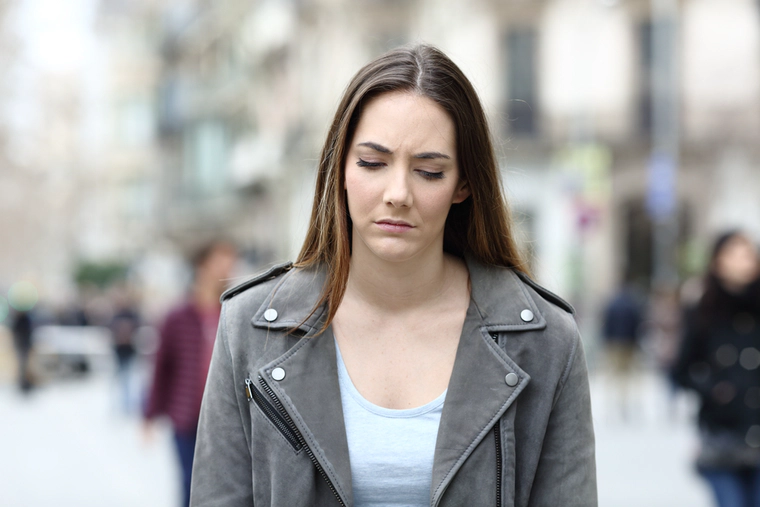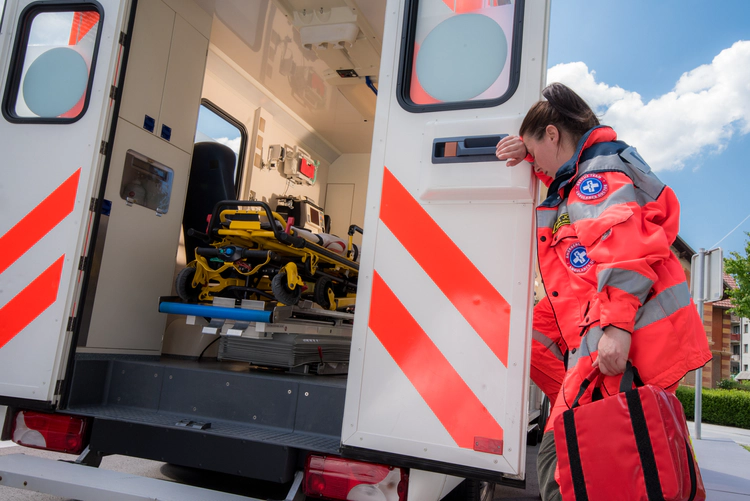Drug Rehab Center Admissions Plummeted During Pandemic, Overdoses Followed
There seems to be a direct correlation between plummeting addiction treatment center admissions during the Covid-19 pandemic and a spike in fatal drug overdoses during that same period.

Recent findings sought to find a correlation between two grim facts:
-
Treatment center admissions for drug and alcohol addiction plummeted during the Covid-19 pandemic.
-
Fatal drug and alcohol overdoses surged during the pandemic.
While there are numerous reasons why overdoses occur, it seems highly likely that a sudden lack of accessible addiction treatment options may have contributed to the 30% increase in fatal drug overdoses between 2020 and 2021.
A Look at the Data
Treatment center admissions declined sharply during the first year of the Covid-19 pandemic. Shortly after, fatal overdoses surged. These are the findings of a RAND Corp. study published in the Journal of the American Medical Association in September 2022.1
To arrive at the above conclusion, health policy researchers at RAND studied addiction treatment center admissions between 2017 and 2020. Before 2020, admission rates remained stable. In 2020, admissions to treatment centers declined from 66 admissions for every 10,000 population to 50 per 10,000, a 24% drop.
The researchers also noted a significant gender gap, with admissions for men falling from 88 per 10,000 population to 67 per 10,000. For women, admissions fell from 45 per 10,000 to 35 per 10,000.
There were also significant disparities in ethnic groups, though all groups experienced a drop. For Indigenous Americans, the rate fell from 145 per 10,000 to 83 per 10,000. For Blacks, numbers dropped from 83 to 63 per 10,000. For Hispanics, it fell from 55 to 41 per 10,000. For Whites, it fell from 54 to 43 per 10,000. For Asians, it fell from 10 to 7 per 10,000.
While admissions to treatment centers declined almost everywhere, the decline was most severe in New Mexico, Hawaii, Nevada, and West Virginia, regions that rely heavily on state-funded treatment centers. Many such centers shuttered during the pandemic, often leaving addicts no place to go for treatment.
While commenting on the findings, the researchers suggested that lack of access to drug rehab centers due to the pandemic may have pushed addicts to the brink and caused overdoses that would not have happened were treatment available. Quoting study author Jonathan Cantor, a policy researcher at RAND, “These declines in the number of Americans receiving treatment are especially noteworthy given evidence of increases in substance use disorder and overdose death rates during the same time period.” More on the overdose spike is covered in the next section.2
Overdoses Surged as Treatment Centers Shuttered Their Doors!

As countless institutions shut down during the Covid-19 pandemic, thousands of drug and alcohol rehab centers followed suit and shuttered their doors. Unfortunately, unlike many businesses, nonprofits, churches, schools, and community centers, people died from drug overdoses when they could not access treatment centers.
According to the Centers for Disease Control and Prevention, fatal drug overdoses surged by almost 30% between 2020 and 2021. Almost 75% of the 91,799 drug-related deaths in 2020 involved an opioid, a significant spike over the 2019 death rate.3 Drug overdose deaths surged again in 2021, this time by 15%.
While it is true that fatal drug overdoses have steadily been rising since the turn of the century (CDC reports a 400% increase since 1999), the 30% increase between 2019 and 2020 was the largest year-over-year increase ever recorded. The increase was almost certainly influenced by the stress factors, isolation, job loss, and lack of access to treatment created as harmful side effects of the Covid-19 pandemic.
In the future, drug and alcohol rehab centers must implement policies and safety measures so they can continue providing treatment services to struggling addicts, even during a pandemic.
When Obstacles Arise, What Can Family Members Do to Help Their Loved Ones?

Family members and loved ones of addicts need to have tools to help their loved ones get into treatment. There are often obstacles and challenges that must be overcome for addicts to seek help, and the Covid-19 pandemic made it clear how insurmountable these obstacles can become.
Given that there will almost certainly be more pandemics in the future, family members and loved ones must know what to do to help their loved one seek help. And they must act fast too. The longer a loved one continues to use drugs without seeking help, the more likely they will lose their life from drug use.
Here are five tips that family members and loved ones can utilize to help their loved one get clean:
-
Never give up on talking with a loved one. An addicted loved one will rarely come around and accept help on the first conversation. Persistence is key.
-
Focus on solutions, not problems. Addicts will find every problem imaginable and use it as a reason not to seek help. Find solutions to those problems and persist.
-
Get in touch with drug rehab centers. Counselors at rehab centers are trained in handling the intake process, i.e., the various actions needed to get an addict off the streets and into rehab.
-
Read up on drug and alcohol addiction. The best advocate for an addict is someone who knows what that addict is going through.
-
If nothing works, seek the help of an interventionist. Interventionists are trained to convince addicts to seek treatment and are proficient at helping them solve problems that may be preventing them from seeking help.
There Is Never a Good Reason to Avoid Seeking Treatment
There is never a good reason or excuse to avoid seeking drug and alcohol addiction treatment. If your family member or loved one is using drugs, don’t take no for an answer. Work with them as long as it takes and discuss the issue as often as necessary to convince them to get help. Please don’t wait until it is too late.
Sources Cited:
-
JAMA. “Analysis of Substance Use Disorder Treatment Admissions in the U.S. by Sex and Race and Ethnicity Before and During the COVID-19 Pandemic.” Journal of the American Medical Association, 2022. jamanetwork.com ↩︎
-
USNews. “Big Drop Seen in Drug Treatment Admissions During Pandemic.” U.S. News, 2022. usnews.com ↩︎
-
CDC. “Understanding the Epidemic.” Centers for Disease Control and Prevention, 2022. cdc.gov ↩︎






 ®
®